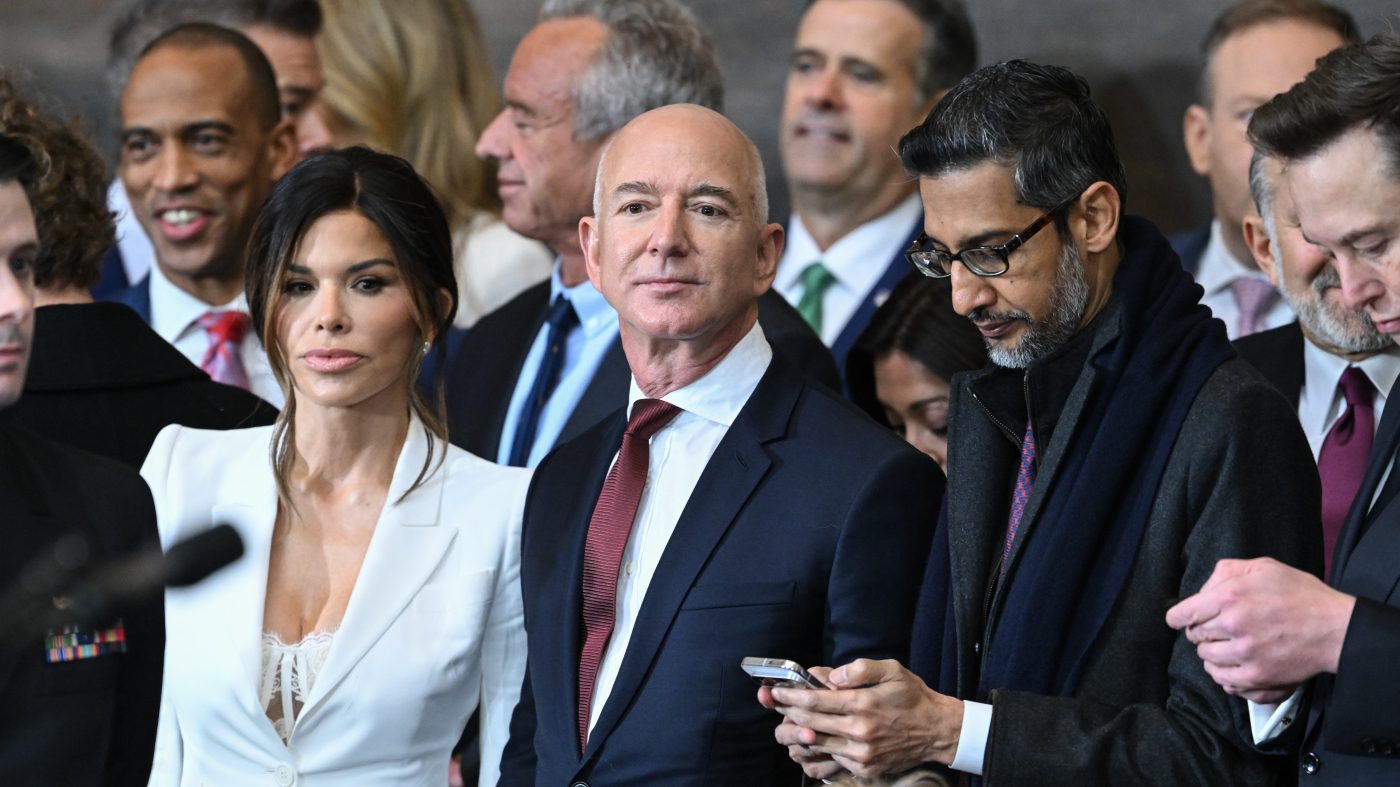
Major Shift at The Washington Post: Jeff Bezos’ Overhaul Sparks Subscriber Exodus

Caption: Jeff Bezos, owner of The Washington Post, seen at the inauguration of President Trump in Washington, D.C., on January 20, 2025. (Photo by Pool/Getty Images North America)
Recently, over 75,000 digital subscribers to The Washington Post decided to cancel their subscriptions following an announcement by Jeff Bezos, the paper’s billionaire owner. This major shift was in response to his plans to significantly revamp the opinion sections, which will now reflect a libertarian perspective while excluding dissenting viewpoints.
The announcement triggered the immediate resignation of Opinions Editor David Shipley, who had been actively trying to persuade Bezos to reconsider his approach. Unfortunately, Shipley declined to comment on the situation.
Bezos’s decision also led to a backlash from respected figures within the paper, such as Associate Editor David Maraniss and former Executive Editor Marty Baron. Baron characterized the move as "craven," stating that Bezos seemed "basically fearful" of Trump.
The cancellation figures were disclosed by an anonymous source worried about potential backlash from The Post. The company, being privately owned, refrained from commenting on the subscriber numbers initially reported by NPR, nor did they address the criticisms lodged against the changes.
A Pattern of Subscriber Loss
The recent wave of cancellations reflects an unprecedented level of dissatisfaction among readers. However, this is just part of a larger trend that began in late October when Bezos scrapped a planned endorsement of Democratic presidential candidate Kamala Harris. In the weeks leading up to the election, more than 300,000 subscribers exited The Post, which is over 12% of its digital readership.
Despite facing these cancellations, The Post has essentially aimed to replenish its subscriber base by attracting 400,000 new readers, often through substantially discounted rates. Even with these new additions, internal views indicate that The Post might have lost as many as 200,000 subscribers since the election.
Emphasizing Personal Liberties
Under Bezos’s ownership and Baron’s editorial leadership during Trump’s first term, The Post adopted a motto stressing accountability journalism. The editorial board previously expressed concerns about the implications of a second Trump term on democracy.
However, Bezos’s memo emphasized a new philosophy centered around "personal liberties and free markets," leaving behind the comprehensive pluralistic opinion section. In his note to the staff, he asserted that, while other topics would still receive coverage, opposing perspectives would not be featured.
This shift raised concerns among senior news executives, prompting Executive Editor Matt Murray to reassure staff that there would be no interference with news reporting, which operates independently from the opinion page.
Rebuilding Public Trust
Bezos’s decision to rescind the endorsement of Harris was partly fueled by a desire to enhance the paper’s credibility with the public. Claimed by Bezos in an opinion piece, he noted that many perceive the media as biased, which he recognized as a reality.
Nonetheless, his status as the owner of various business interests complicates matters, especially since Amazon and Blue Origin have lucrative contracts with the government. The evolving landscape of government and business relations under Trump’s administration has positioned the press as a target, presenting significant challenges to maintaining journalistic integrity.
Growing Distrust Within The Newsroom
Many staff members at The Post have expressed skepticism regarding Bezos’s increasingly cozy relationship with Trump. For instance, in January, Shipley rejected a political cartoon by Pulitzer Prize-winning artist Ann Telnaes, leading her to resign. Telnaes articulated that the newspaper has a fundamental duty to protect free press, despite its commercial aims.
Subsequently, another surge of cancellations followed Telnaes’s resignation, suggesting a pattern of heightened discontent among readers.
The current situation marks the first public acknowledgment of these significant cancellation trends. In response to the upheaval, competitors like The Guardian and The New York Times have leveraged this opportunity to reinforce their commitment to independent journalism, emphasizing their dedication to delivering insightful and trustworthy reporting during tumultuous times.
In conclusion, as The Washington Post navigates this critical juncture, the implications of Bezos’s decisions could shape its future, raising questions about the balance between business interests and editorial independence.









